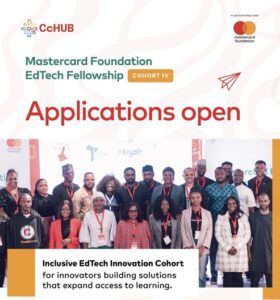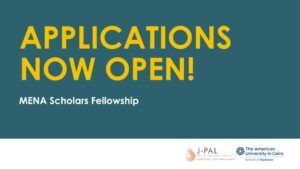The Centre for Democracy and Development (CDD) is now accepting fellowship applications for 2021-2022. CDD’s fellowship program aims to bring together people working in areas related to democracy and development from across a broad range of disciplines. CDD commits to leveraging its profile and resources in West Africa and internationally to advance CDD fellows’ research and reputation.
CDD will award two types of fellowships:
- Residential Fellowships, including:
- Six-month,
- One-year fellowships, including two named and fully funded fellowships.
- Non-residential fellowships, which are typically long-term (longer than a year).
Non-Residential Fellows
The Non-Resident Fellowship aims to support experienced civil society professionals and academics to work on innovative projects which their current work environment may not be conducive to. CDD will provide the full range of its capacity to develop projects from ideation to execution. While we generally accept residential fellows in cohorts, we deal with non-resident fellows on an individual basis. This does not preclude working with other fellows and staff; CDD highly encourages collaboration where possible. While non-resident fellows are not typically expected to report to CDD, we can arrange for short-term stints at the office where necessary.
Residential Fellows
CDD expects that residential fellows will work on a project relevant to CDD’s thematic areas; be open to collaboration with CDD staff, including holding training sessions for staff on new conceptual frameworks and methodologies; and present within and outside CDD on their projects. Residential fellows are expected to be physically present on the CDD premises for the entire duration of the fellowship.
The two named fellowships are fellowship positions attached to the annual lectures that two eminent fellows are expected to give under CDD auspices. The fellows will work actively in the various year-long activities of the annual lecture, culminating in written work suitable for publishing in a respected journal. We will give more information on the named fellowships after the annual lectures have been unveiled—this means that right now applications for the named fellowships are not being accepted.
Qualifications
As CDD is in the nascent stages of an expanded fellowship program, we have just a few guidelines for application:
- We are only accepting applications from PhD students or post-doctoral scholars whose research is relevant to CDD’s thematic areas.
- We encourage women, West Africans, and Africans studying West Africa to apply.
- Proficiency in English is required, proficiency in French is a strong plus.
- We are not accepting applications from Nigerian citizens or Nigerian dual citizens for our residential fellowships. Nigerians and Nigerian dual citizens are welcome to apply for non-residential fellowships.
Stipends
CDD will award a modest stipend to a small number of applicants, specifically those who can demonstrate financial need. The stipends may vary depending on the length of the program. We do not expect that most fellows will receive CDD funding. We are able to provide references for external grants or other kinds of support. All fellows under the named fellowship will receive full funding—right now, named fellows are not being accepted.
Questions
Questions about the fellowship should be directed to fellowship@cddwestafrica.org
How To Apply
Applicants should send to fellowship@cddwestafrica.org:
- A resume or C.V.
- A personal statement not more than 1000 words long that responds to the following:
- What is the project you propose to implement?
- This should address the problems the project seeks to solve, the methods you might employ, and the beneficiaries of your research project.
- How is CDD uniquely positioned to facilitate your project?
- We are looking for broad indications here. For example, CDD’s work on politics and technology is emergent, although we are keen to take fellows in this area.
- What is the project you propose to implement?
- How does your personal background inform and influence your research?
- A copy of a relevant publication
- Indicate whether you are applying for funding or not. If you are, append any information demonstrating your need to the application.
- The email subject line should be formatted as “fellowship application for [indicate length of fellowship] starting [indicate preferred date: mm/yyyy]â€
For More Information:

